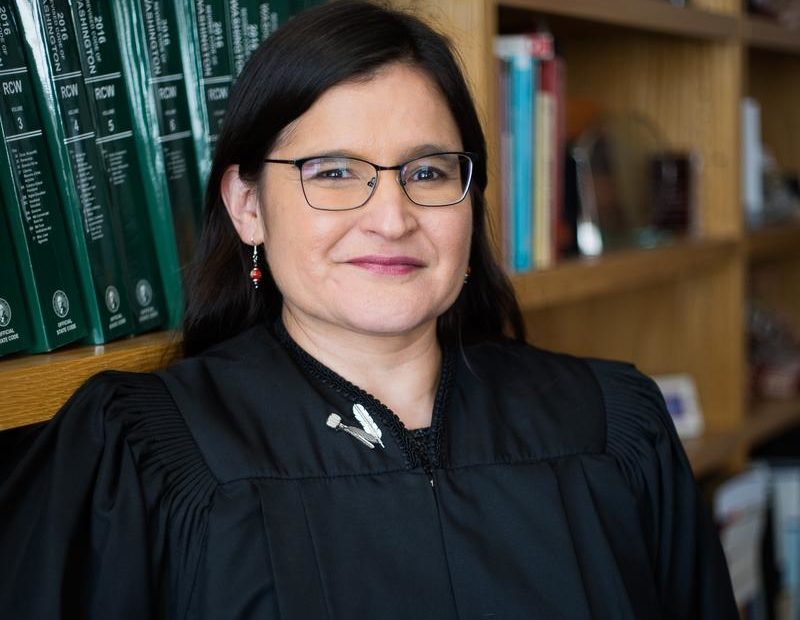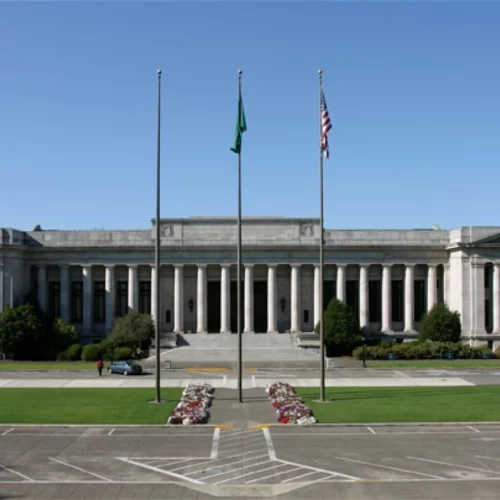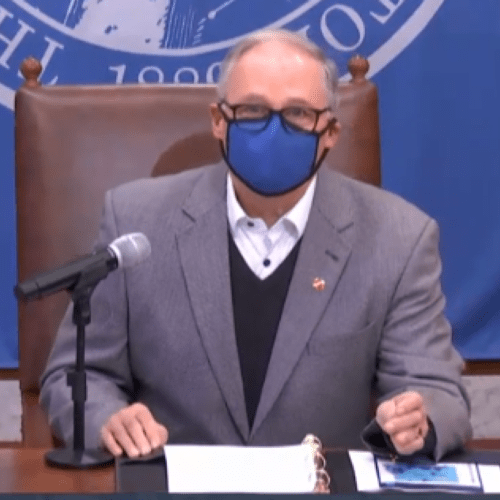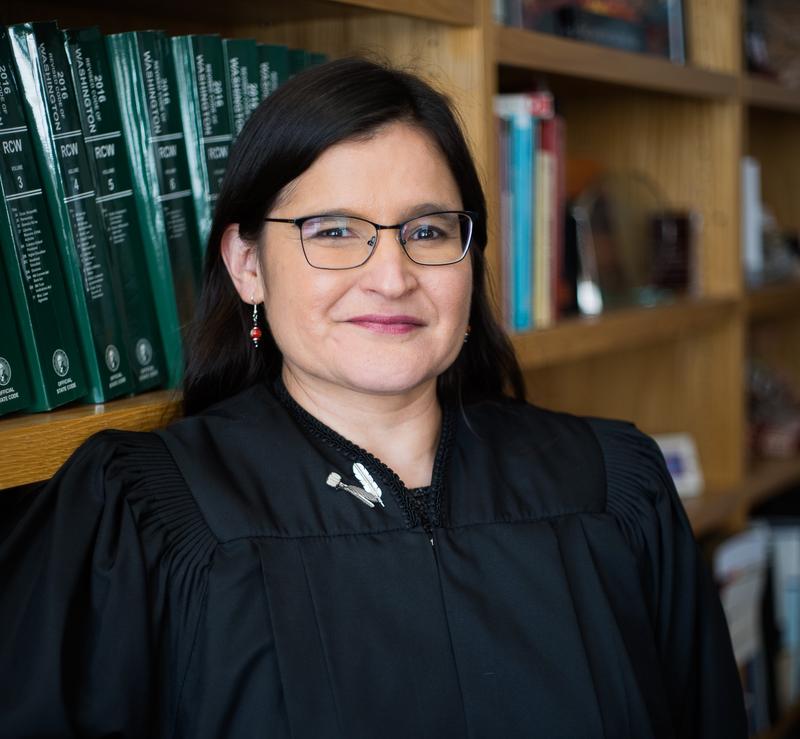
Governor Jay Inslee Appoints First Native American To Washington Supreme Court
READ ON
In a barrier-breaking appointment, Washington Gov. Jay Inslee has selected a Whatcom County judge to serve as the first known Native American justice on the state Supreme Court since its founding in 1889.
Whatcom County Superior Court Judge Raquel Montoya-Lewis, 51, who is an enrolled member of the Pueblo of Isleta tribe of New Mexico, will replace Chief Justice Mary Fairhurst when she retires in January.
Fairhurst, who is battling colon cancer for the third time, announced in October that she would step down before her term ends. Justice Debra Stephens, who was first appointed to the court in 2008, has been selected as the next chief justice.
Montoya-Lewis will serve out the remainder of Fairhurst’s term and then run for election next November.
Inslee was scheduled to formally announce Montoya-Lewis’ appointment at a news conference at the Temple of Jutice in Olympia at 11 a.m. on Wednesday.
In a statement, Inslee said it was appropriate to focus on the historic nature of Montoya-Lewis’ appointment as the first Native American justice. But he added: “I want the record to show that Judge Montoya-Lewis is the kind of exceptional judge I want serving on the highest court in our state because she is the best person for the job.”
Inslee went on to call Montoya-Lewis a “super star” and said she will bring “intellectual humility, courage of conviction, and a personal commitment to improving access to justice for all of our communities.”
In her own statement, Montoya-Lewis said she would bring her 20 years of experience as a judge in tribal and superior courts, and the personal stories of “struggles and challenges” that she’s heard over those two decades, to the Supreme Court. “I hope to honor and serve the people, my colleagues, my ancestors, and my family with the integrity and honor each of them have shown me over these many years.”
Montoya-Lewis will join a court that is majority female, with six women and three men, and includes a Latino justice, Steven Gonzalez, and the first openly gay and Asian American justice, Mary Yu.
Washington is one of 11 states, including Oregon, with majority female Supreme Courts, according to the National Center for State Courts.
Inslee first appointed Montoya-Lewis to the Whatcom County Superior Court in 2014. She was subsequently elected to the position. Previously, Montoya-Lewis served as chief judge for the Nooksack, Skagit and Lummi tribes. She has also served as a tribal appellate judge and taught at Western Washington University.
Prior to that, as a practicing attorney, Montoya-Lewis represented Indian tribes throughout the United States. Her areas of expertise include child welfare and dependency and tribal membership and enrollment, according to her biography.
Montoya-Lewis holds both a law degree and a Master of Social Work from the University of Washington.
In addition to serving as a judge, Montoya-Lewis teaches implicit bias classes to fellow judges and court officers.
Montoya-Lewis was selected from a pool of 11 applicants for the position, which included Pierce County Superior Court Judge Helen Whitener who became the first openly gay, black judge in Washington when she was appointed by Inslee in 2015.
The right-of-center Washington Policy Center had urged Inslee to consider appointing a justice from eastern Washington to provide more regional balance to the court. Five of the applicants for the open position hailed from east of the Cascades, including Judge George Fearing of Richland who serves on the state Court of Appeals.
The last appointment to the high court was Justice Yu in 2014.
Related Stories:

WA Supreme Court rules state’s Voting Rights Act is constitutional
The Washington Supreme Court denied the appeal challenging the constitutionality of the Washington State Voting Rights Act on the Latino voting rights lawsuit against Franklin County. The Court’s opinion came only a month after the judges heard oral arguments from the parties involved.

WA Supreme Court upholds capital gains tax just weeks ahead of collection deadline
The Washington Supreme Court has ruled in a 7-2 decision to uphold the constitutionality of the state’s new capital gains tax. The decision filed Friday comes just weeks before taxes are due.

Once Again, Washington Lawmakers Sue Inslee Over Vetoes
For the second time, Washington lawmakers are suing Gov. Jay Inslee over his use of the veto pen. In a lawsuit filed Monday in Thurston County Superior Court, the Legislature asserts Inslee exceeded his veto power earlier this year when he line-item vetoed parts of the state transportation budget and eliminated a subsection of a low carbon fuels bill.
















